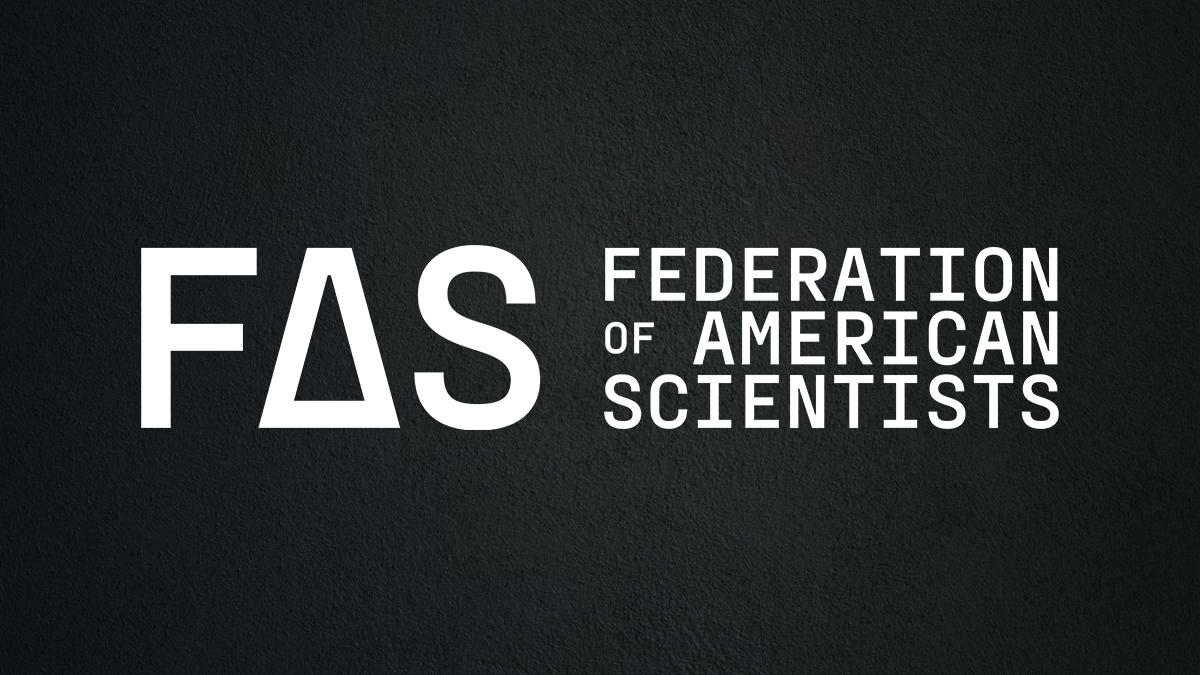
Position on S. 1462, the Fix Our Forests Act
The Federation of American Scientists supports S. 1462, the Fix Our Forests Act. Our letter of support is reprinted below.
September 9, 2025
The Honorable John Thune
Majority Leader
United States Senate
Washington, D.C. 20510
The Honorable Charles Schumer
Minority Leader
United States Senate
Washington, D.C. 20510
Dear Majority Leader Thune and Minority Leader Schumer,
We represent a broad range of organizations advocating to increase resilience to catastrophic wildfires, invest in active forest management including thinning, prescribed fire, restoration, and reforestation, improve land use planning and land management, enhance wildlife habitat and water quality, and better protect communities from wildfires. We support S. 1462, the Fix Our Forests Act.
The rising risk of wildfire is an urgent and far-reaching crisis. Across the country, Americans are impacted by severe wildfires, from the tragic Palisades and Eaton Fires in Los Angeles earlier this year, to the smoke-choked skies of our Eastern and Midwestern cities this summer and last. Compounding severe wildfires, we are losing our forests to extreme weather like Hurricane Helene, drought, and insects and diseases that are ravaging heritage species like the white oak and giant sequoias. Just as Americans are directly impacted by wildfires and the loss of hundreds of millions of trees, so too are the natural resources and ecosystems we rely upon to provide drinking and agriculture water, feed and house us, provide for our recreation and hunting grounds, and sustain our traditions and ways of life.
Despite widespread recognition of the need to mitigate the threats posed by catastrophic wildfire and ecosystem degradation, our lands and communities are at risk now more than ever before. Congress has an opportunity and responsibility to act. The Fix Our Forests Act is a critical step forward. The bill provides an opportunity to speed up the planning and implementation of wildfire risk reduction projects on federal lands while expanding collaborative tools to bring more partners into this vital work. Additionally, it bolsters the use of prescribed fire to help reduce fire severity and restore ecosystems. The bill recognizes that replanting after wildfire and other extreme events goes hand in hand with active forest management and the legislation supports ecosystem and habitat restoration across our public lands and in the priceless white oak forests of the Eastern U.S. The Fix Our Forests Act also takes a broad view of the solutions needed by establishing a Community Wildfire Risk Reduction Program to address risk in the built environment and creating a Fire Intelligence Center to improve interagency coordination and adoption of new technologies.
The House has already acted on the companion bill, H.R. 471. It remains for the Senate to continue to advance the Fix Our Forests Act out of the Committee on Agriculture and Nutrition and secure passage of the bill before the full Senate. We commend the work of the Committee and cosponsors to date and we urge you to take swift action. Congress has the opportunity to take bipartisan action now, proactively, before the next fire inevitably costs lives, livelihoods, and ways of life.
Sincerely,
Alliance for Wildfire Resilience
American Conservation Coalition Action
American Forests
American Property Casualty Insurance Association
Bipartisan Policy Center Action
Citizens’ Climate Lobby
Climate and Wildfire Institute
Federation of American Scientists
International Association of Fire Chiefs
Megafire Action
National Association of State Foresters
National Wild Turkey Federation
Nature is Nonpartisan
Property and Environment Research Center
Rocky Mountain Elk Foundation
Rural Voices for Conservation Coalition
Tall Timbers
The Stewardship Project
Theodore Roosevelt Conservation Partnership
United Aerial Firefighters Association
Vibrant Planet
White Oak Initiative
FAS is launching the Center for Regulatory Ingenuity (CRI) to build a new, transpartisan vision of government that works – that has the capacity to achieve ambitious goals while adeptly responding to people’s basic needs.
This runs counter to public opinion: 4 in 5 of all Americans, across party lines, want to see the government take stronger climate action.
Cities need to rapidly become compact, efficient, electrified, and nature‑rich urban ecosystems where we take better care of each other and avoid locking in more sprawl and fossil‑fuel dependence.
Hurricanes cause around 24 deaths per storm – but the longer-term consequences kill thousands more. With extreme weather events becoming ever-more common, there is a national and moral imperative to rethink not just who responds to disasters, but for how long and to what end.